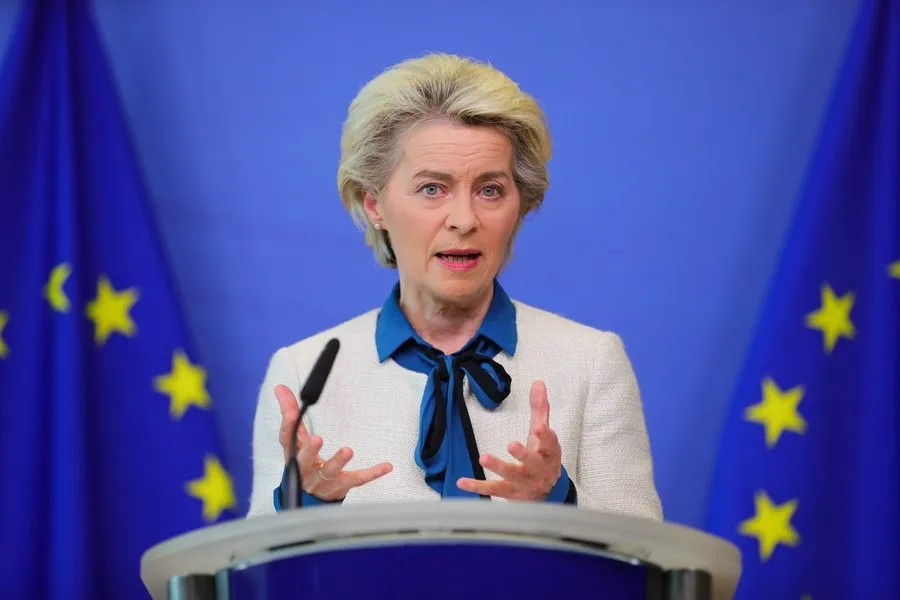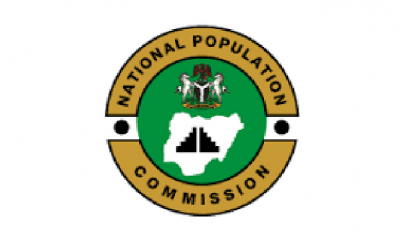Foreign News
EU commissioners slam Russian president on European Remembrance Day

Two European commissioners raised serious charges against Russian President Vladimir Putin ahead of the European Day of Remembrance for victims of totalitarian and authoritarian regimes.
Putin returned “war, persecution, and illegal occupation” to Europe with the invasion of Ukraine, EU Commission Vice President Věra Jourová and EU Justice Commissioner Didier Reynders said on Tuesday.
The European Union has observed the Europe-Wide Day of Remembrance for the victims of all totalitarian and authoritarian regimes or “Black Ribbon Day” every August 23 since 2009.
The date is also the anniversary of the Molotov-Ribbentrop Pact, a military non-aggression agreement between Nazi Germany and the Soviet Union, which paved the way for the German invasion of Poland in September 1939.
In recent years, the EU has underlined the importance of the date for highlighting the Soviet Union’s crimes and abuses in Europe, pushing back against Russian-led revisionism.
Jourová and Reynders stressed in their statement that the EU would continue to push back against Russia’s efforts to spread conspiracies and “provide facts to dismantle such distortions.”
Reaffirming the bloc’s support for Ukraine against the Russian invasion, Jourová and Reynders said the sustained peace in Europe after World War II offers hope for the future amid the return of war.
Foreign News
US Seeks $15,000 for Visa Applicants Deposit from Two African Countries

The US has required citizens from Malawi and Zambia to pay a $15,000 (£11,300) deposit for a tourist or business visa, according to the US state department.
The 12-month pilot programme aims to curb visa overstays or where screening and vetting information is considered deficient according to a notice published by the state department.
It was said that citizens of other countries than Malawi and Zambia may soon also need to pay a similar deposit, which will be returned at the end of their visit to the US.
The US administration has taken several steps to further President Trump’s agenda of stemming illegal immigration.
Trump signed an executive order on the first day of his second term to this effect, and the state department noticed published on Tuesday, says: “Aliens applying for visas as temporary visitors for business or pleasure (B-1/B-2) and who are nationals of countries identified by the Department as having high visa overstay rates, where screening and vetting information is deemed deficient, or offering Citizenship by Investment, if the alien obtained citizenship with no residency requirement, may be subject to the pilot program.
“Consular officers may require covered non-immigrant visa applicants to post a bond of up to $15,000 as a condition of visa issuance, as determined by the consular officers.” Figures published in 2023 by the US department of Homeland Security show that about 14% of visitors from Malawi overstay their visas, compared to 11% of Zambian visitors.
Other countries with high overstay rates include Haiti (31%), Myanmar (27%) and Yemen (20%).
Zambia Foreign Minister Mulambo Haimbe had said the government was “engaging our counterparts to get a full understanding of the implications and what can be done, if anything, to address the underlying issues”.
Since coming to office in January, Trump has signed orders to roll back humanitarian programmes for migrants from certain countries who are already in the US. He has also banned foreign nationals from 12 countries from travelling to the US, and imposed partial restrictions on another seven.
His administration has revoked visas for hundreds of international students and detained several others on college campuses across the US, often without any warning or recourse for appeals.
The state department has said it is targeting those who were involved in activities that “run counter” to US national interests.
Many of those targeted have participated in some form of pro-Palestinian activity.
But there have been other cases where cancellations appear to be connected to those with some sort of criminal record, or legal infractions like driving over the speed limit, immigration lawyers have said.
Foreign News
Ghana Raises Cocoa Prices to $5,040 Per tonne

Ghana on Monday increased the producer price of cocoa by more than 60 percent ahead of the 2025-26 season, a move expected to put pressure on top cocoa-producing rivals like the Ivory Coast.
The move could also raise global cocoa costs even further, at a time when supply chains are already tightening due to climate shocks and ageing farms.
Finance Minister Cassiel Ato Forson said the rate paid to farmers will rise from $3,100 to $5,040 per tonne, a 62.
58-percent increase.“The cocoa farmer remains a critical pillar of our economy, and this government is committed to ensuring they benefit from the gains we are making,” the minister said at a news conference in the capital, Accra.
Ghana, the world’s second-largest cocoa producer, typically sets its prices ahead of the Ivory Coast, which leads global production.
The Ivorian government is currently paying farmers 2,200 CFA francs per kilogramme, about $3,900 per tonne.
The substantial increase in Ghana is in line with a campaign promise by President John Mahama, elected in December, to raise cocoa farmers’ share of export earnings to at least 70 percent of the Free-On-Board (FOB) value — the price of cocoa at the point it is loaded onto a ship for export.
The FOB price has shot up in recent years, with the current $7,200 price reflecting a blend of earlier contracts signed at $2,600 per tonne during the 2023-24 season and forward sales forecasts for 2025-26, Forson said.
Farmers were previously only receiving 63.9 percent of the FOB price, or $3,100 of the $4,850 FOB value, in the 2024-25 season.
Forson said the revised price also accounts for improved macroeconomic conditions, including a strengthening cedi and easing inflation.
Ghana’s price controls are meant to stabilise earnings for farmers, especially during price dips, but critics say they have lagged behind market highs, especially in recent years, as global prices have spiked.
In response, some farmers have joined the country’s gold rush, selling off land to informal miners — many of whom have left environmental destruction in their wake, further squeezing production.
Getting fair prices for farmers — at the bottom of cocoa’s global value chain — has long been a goal of both activists and West African governments, with fingers pointed at both private firms and buyers as well as official corruption.
Forson also announced the reintroduction of the government’s free cocoa fertiliser programme, which includes the distribution of fertilisers, insecticides, fungicides, spraying machines, and flower inducers to increase yields and income.
Foreign News
Russia Willing to Cooperate with South to Counter U.S. Sanctions

Russia is ready to step up cooperation with the Global South and BRICS to counter the illegal U.S. sanctions pressure, Russian Foreign Ministry spokeswoman Maria Zakharova said on Monday.
“Nevertheless, we believe that no tariff wars and sanctions can alter the inevitable course of history.
“We have a vast network of partners, like-minded people, and allies within the Global South, particularly among BRICS countries, who share this perspective.
“We are ready to step up cooperation with them to counteract illegal unilateral sanctions and to establish a truly multilateral, just, and equitable global order,” Zakharova said.
Such U.S. policy is a direct encroachment on the national sovereignty of states, constituting interference in the domestic affairs of other nations, the spokeswoman said.
“Sanctions and restrictions are a regrettable reality of the current historical stage, impacting the entire globe.
“Washington cannot accept the loss of its hegemony in the emerging multipolar world order and continues to pursue a neocolonial policy to uphold its dominance, using politicised economics.
“Pressures against those who resist its agenda on the international stage,” she said.
























